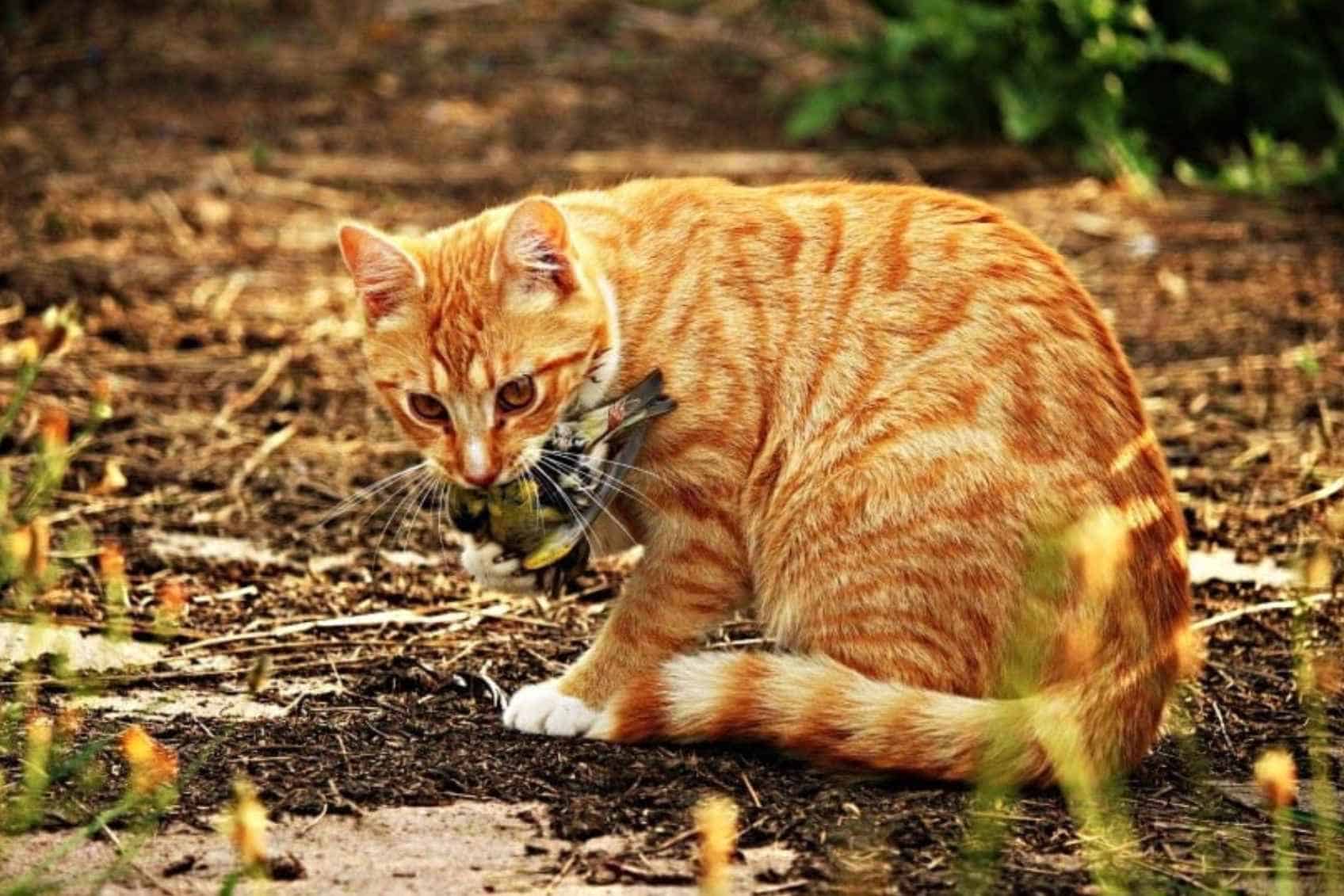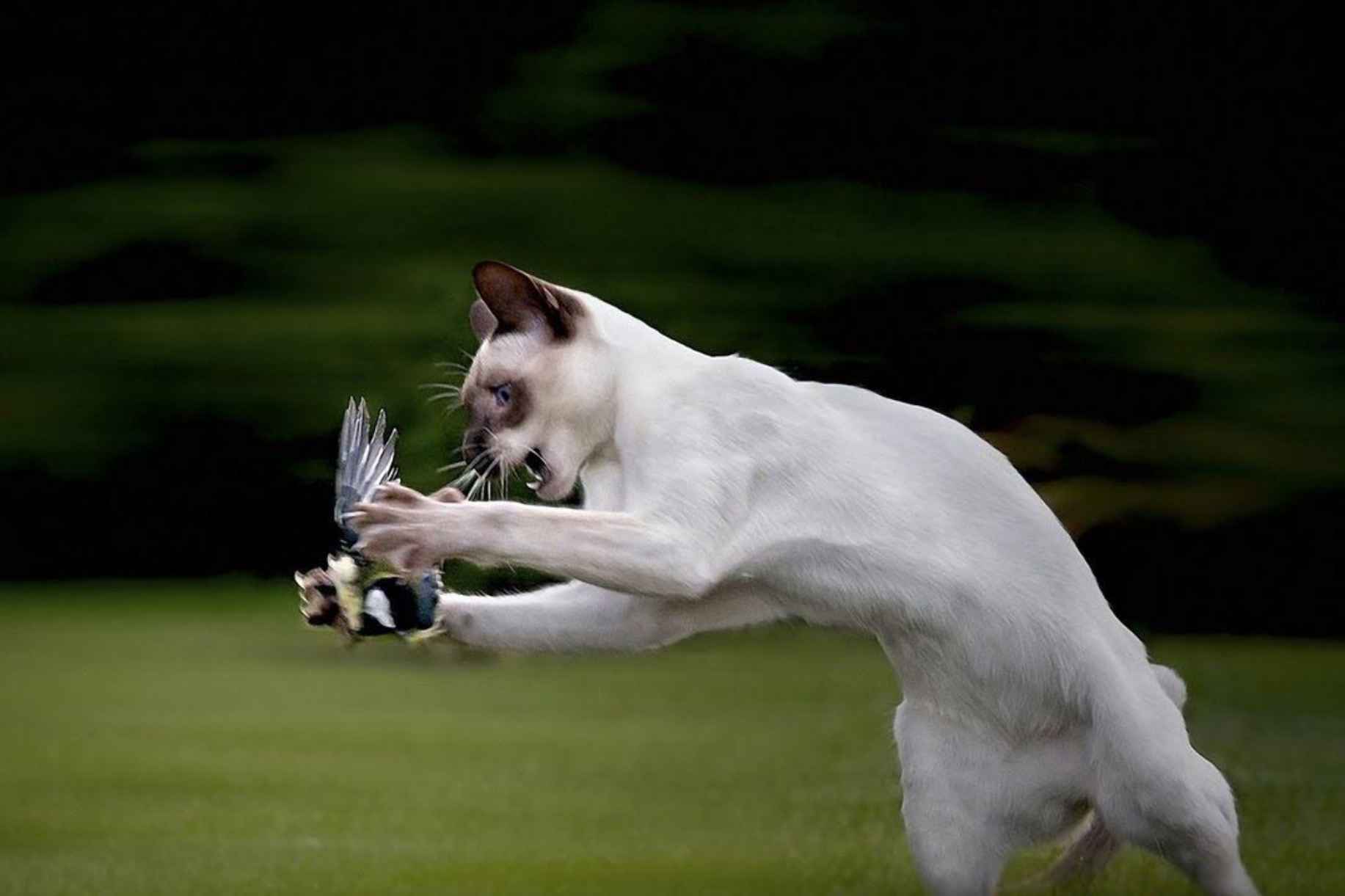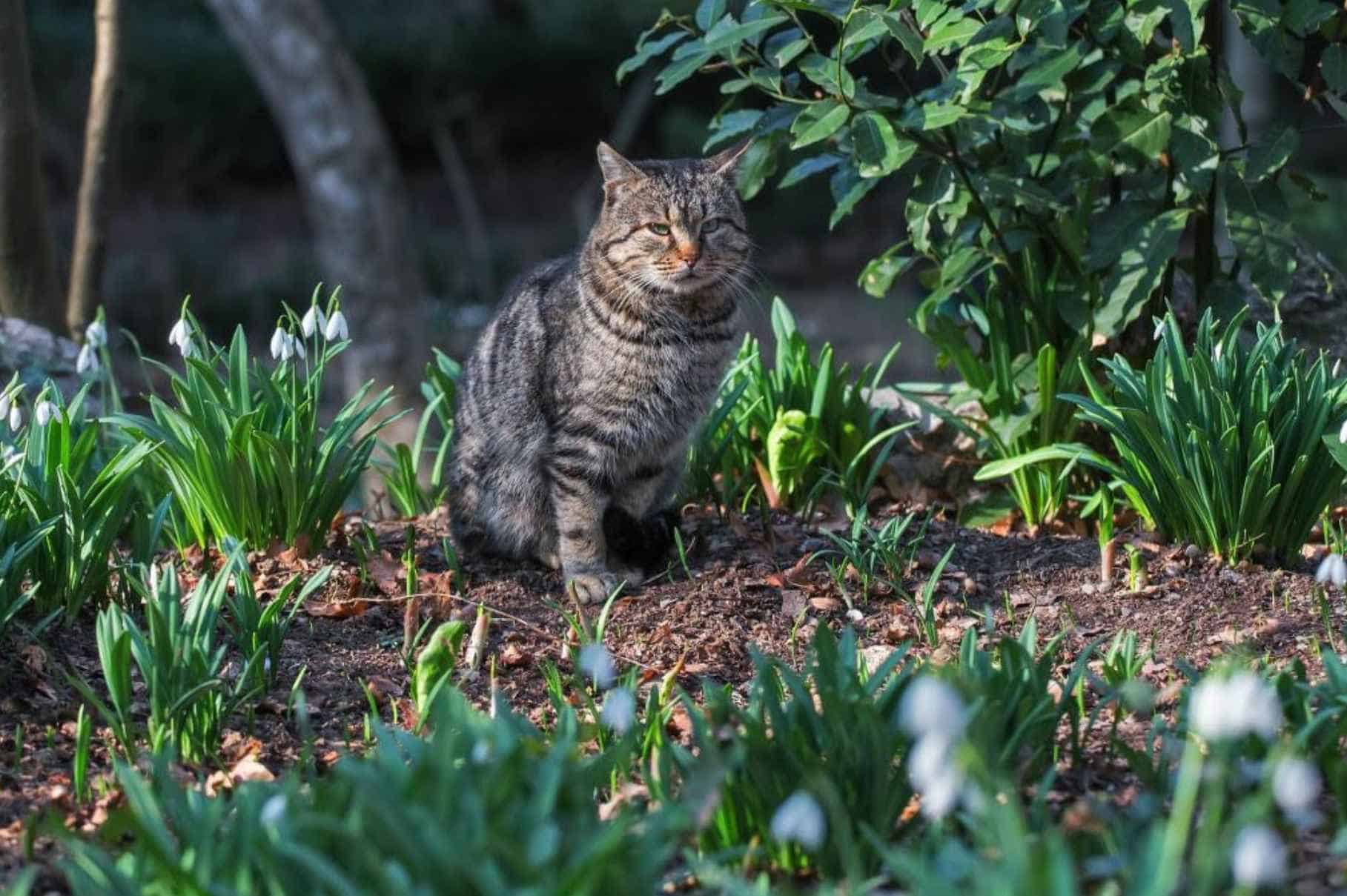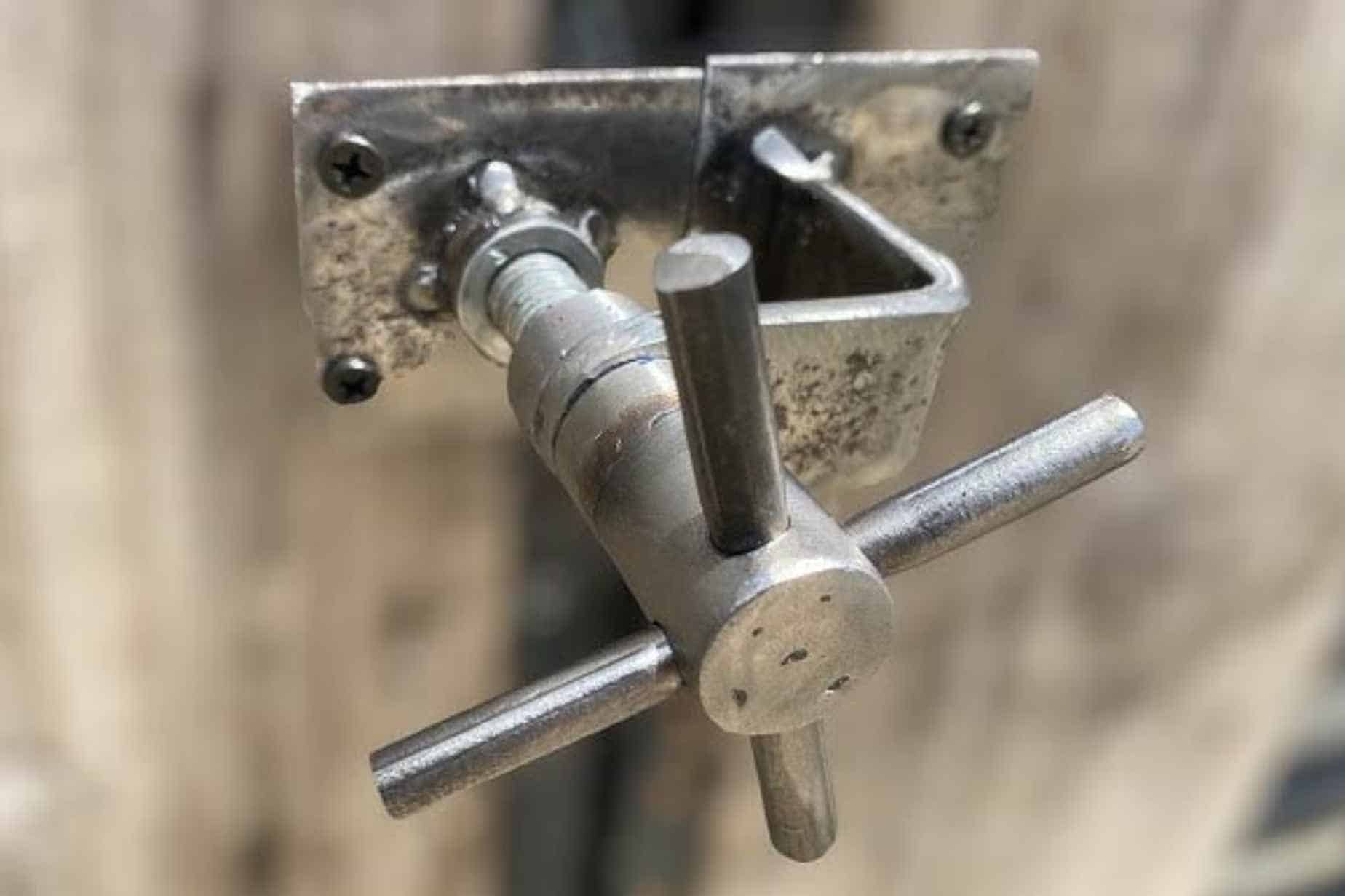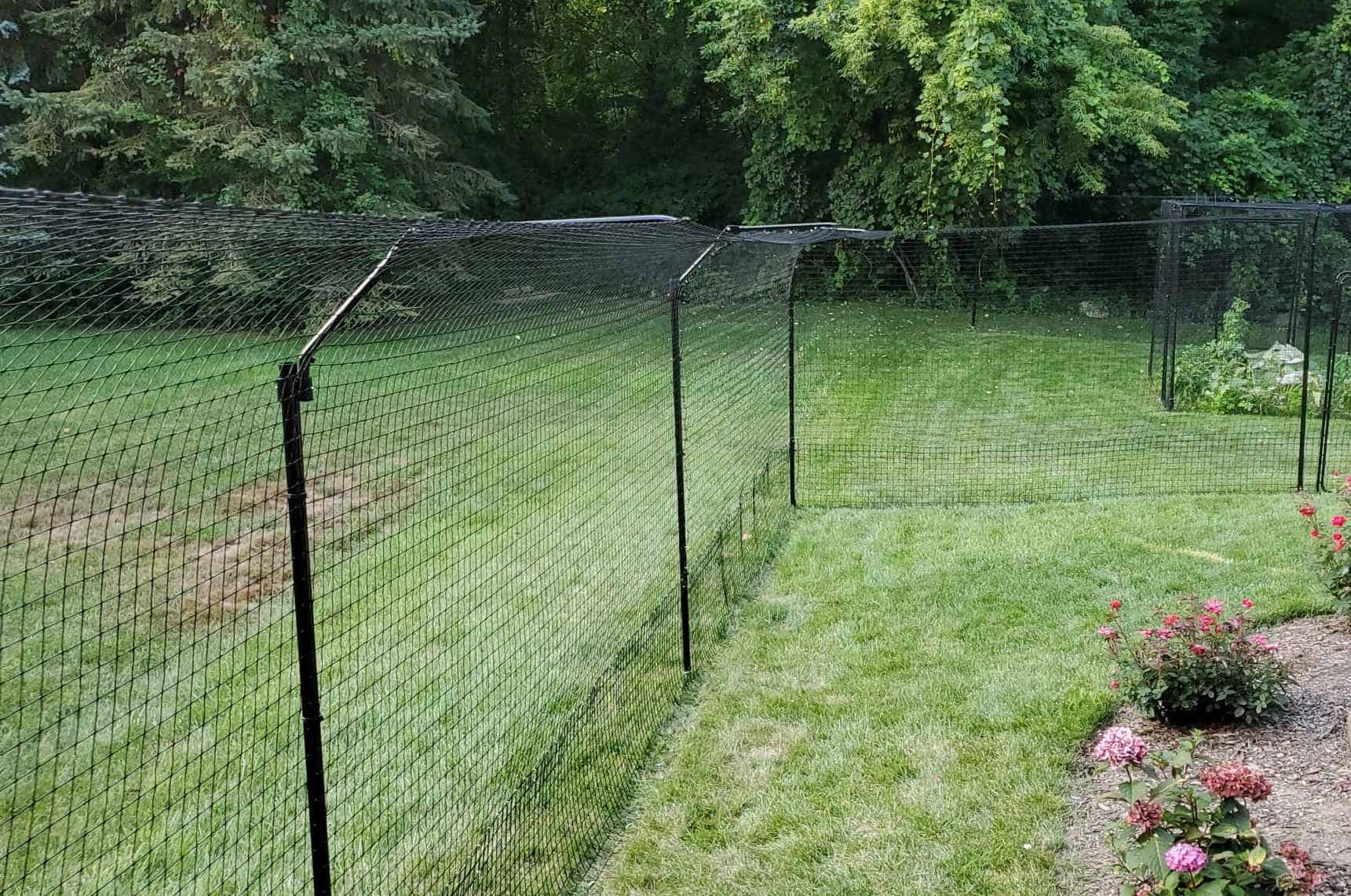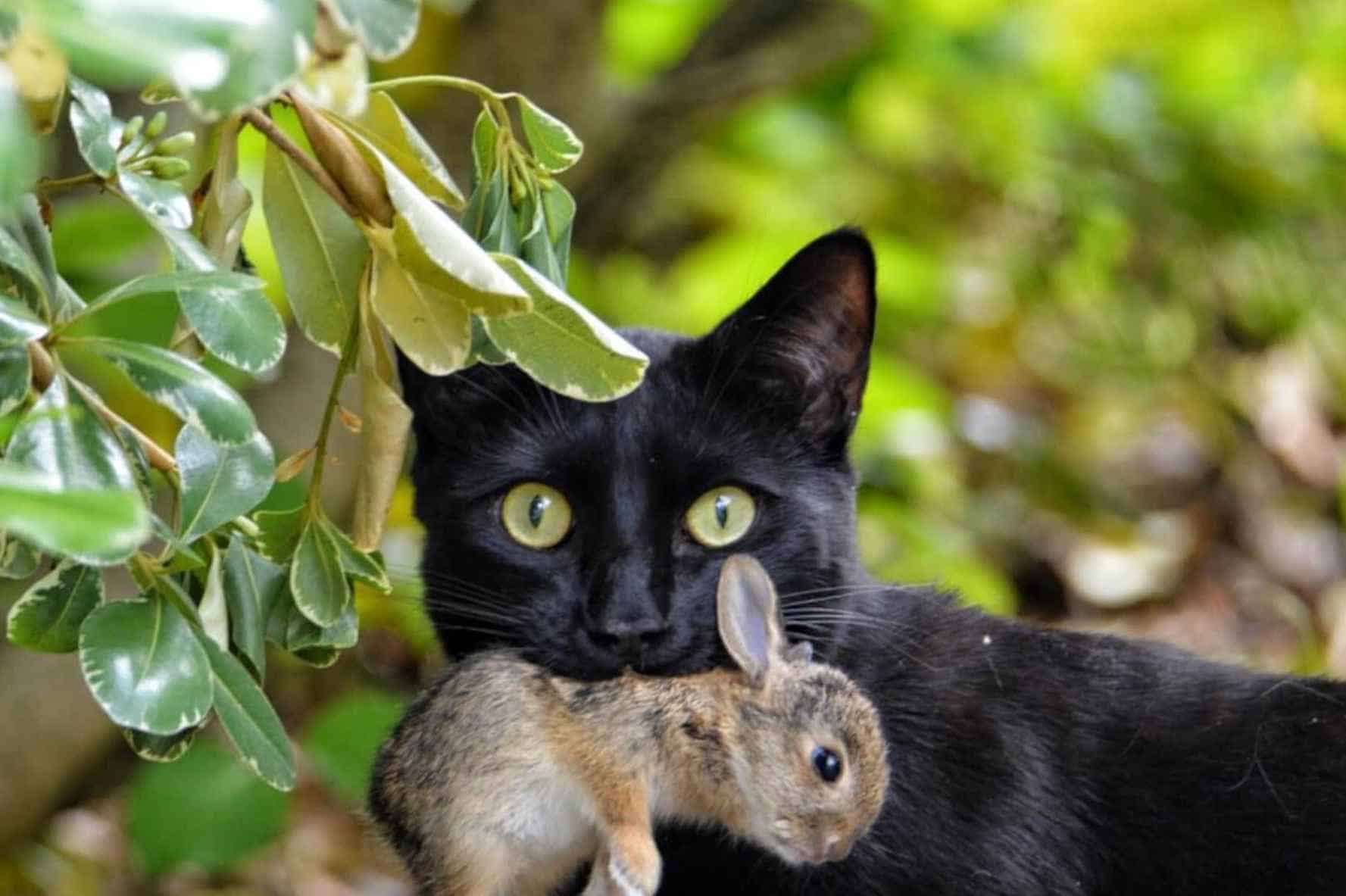“Do cats eat rabbits?”, you may ask. I wondered the same thing too.
Yes, cats, particularly in the wild or in feral situations, can eat rabbits. Cats are carnivorous animals, so they readily eat other animals, including rabbits.
I wouldn’t judge any rabbit owner that sees cats as threats. However, the situation is not entirely hopeless. There are certain things you can do to remedy the situation.
This article will explore why cats eat rabbits and how to stop cats from eating your rabbits. If you own a bunny and are afraid your neighbor’s cat might do something stupid one day, don’t be scared anymore.
Are Cats Natural Hunters?
Why are cats natural hunters? Let’s find out:
They Are Carnivores
Cats are naturally carnivores, meaning they do not feed on plants or their products. Rather, they feed on animals on a lower level in the food chain. Cats feed on animals such as insects, birds, and rodents.
In the past, wild cats were well known for their excellent hunting skills. They move independently during their hunting trips, preying on several animals.
But with the domestication of cats, humans have managed to modify their feeding habits by providing a diet primarily based on commercial cat food.
Despite this, domesticated cats remain obligate carnivores. Unfortunately, this instinct hasn’t died off completely. Several domestic cats would still prefer to hunt for food at every slight opportunity.
They Enjoy Hunting
Cats are natural hunters. Their bodies have evolved to carry out this function. These animals are fast and intelligent, and they adopt different hunting techniques while hunting.
For cats, hunting usually starts with the search for prey, and then there is the stalking, the sneaking, the chase, and, finally, the kill.
Cats don’t just hunt for survival; they enjoy every bit of the process. That is why it is common to see cats bounce on their prey several times before finally devouring it.
Sometimes, cats hunt and kill animals only to return and present them to their owner as a reward. This routine further proves that cats do not only hunt when they are hungry. They hunt for the fun of it.
How to Protect Rabbits from Cats
As noted earlier, cats are natural hunters and would jump at any opportunity to hunt and kill. Rabbit owners must be extra cautious to protect their pets from these predators. To protect your rabbit from the cat’s sharp claws, below are some techniques you can employ.
Use a Cat-repellant Plant
Cat-repellent plants are natural and organic plants that turn off cats, making them avoid places they can find such plants. Examples of cat-repellant plants include lemon, orange, onion, garlic, and certain vegetables.
If you leave out any of these around your rabbit hutch, cats will never come close. The most common organic cat repellent is a mixture of oil, garlic, and onions. You can prepare this mixture in a paste or powder form.
The little downside to this method is that it is only temporary. A more permanent option here is the use of cat-repellant spray. These sprays contain chemicals that could harm the cat’s health.
Deploy a Scarecrow
Scarecrows are objects constructed to look like human beings and dressed in old clothes. Construct one of these and mount it in your compound if you worry about stray cats storming unannounced.
The idea is that whenever a cat sees this figure, it will think of it as an actual human being. You can also add the recorded sounds of certain animals to make the whole charade look more authentic.
With this figure in your compound, cats will be afraid of entering your compound, let alone hunting your rabbits.
Install Complex Locks
Cats are curious and intelligent creatures. Nothing gets past them. They take note of activities in their environment, move slowly, and can navigate through specific challenges all on their own.
Don’t be surprised when a cat tries to open your bunny’s cage even though you had locked it previously.
When cats fumble with the locks of your rabbit hatch, it makes the bunny edgy and uncomfortable. To remedy the situation, remove those simple locks and replace them with more complex ones.
Also, replace the latch with a bolt. Using complex locks protects your bunny from cats and ensures that kids or unauthorized persons don’t play in the rabbit hutch without your consent.
Cat-Proof Your House Fence
Cat-proofing fences is one of the easiest and least expensive methods of keeping cats away. Several cat-proof fences exist, including wooden, plastic wire, and steel wire fences. When constructing this fence, ensure that the mesh size is about 13cm by 13cm.
Cats are persistent hunters. Once they see the rabbit in your home, they won’t stop until they catch them. But setting up cat-proof fences makes it impossible for cats to jump over the fence and get to them.
Remove Food Scraps From Your Yard
Always ensure no food scraps are littering all over the place. Cats have a strong sense of smell, so food scraps might attract them. And once they are inside, your bunny is not safe.
Keep your environment clean always. Don’t let the waste bin overfill before disposal. If you have a grill in your yard, always wipe out food debris and eliminate every odor. If your environment is always clean, cats and other predators will find it unattractive.
Finally, don’t feed cats if you don’t want them around. Most pets are sensitive and will always go where they are wanted. Keep feeding cats and they will always return because you’ve given them the impression that they’re wanted.
Use Water Sprinklers
Cats hate water touching their furry faces. If you do this consistently for some time, they will soon start avoiding your compound like a plague.
Position motion-activated sprinkles at strategic places where your rabbits are likely to be. These sprinkles let off water to specific areas immediately once it senses movement there. But if there are no movements, the sprinklers remain calm.
These sprinklers in your yard will deter cats because they will feel water sprinkled on them whenever they move past.
Keep the Rabbit Indoors
Your cats need access to harm your rabbits. You can restrict this access by keeping the rabbits indoors, away from the cats.
To be fair, this can only work if you have enough room in your house to accommodate them. It is not enough to set up a rabbit hutch; they still need enough space to play around.
When you keep rabbits indoors, it will be difficult for any cat to breach the several layers of security without being seen. Don’t keep your rabbit in the basement or attic. Dust and mold from such places can cause them to develop respiratory tract infections.
Introduce them
This technique can be tricky but very beneficial if you get it right. Naturally, whenever cats see rabbits, their first instinct is to pounce on them and devour them. In the same vein, a rabbit’s first instinct when it sees a cat is to run.
These two animals haven’t evolved to co-exist, they can learn to tolerate each other with professional care and training.
You should only introduce these two pets if they have separate enclosures. It is easier and less risky for them to bond from their different cage.
They can get used to each other’s smell and learn to deal with each other’s presence. Over time, gradually, the cat will stop seeing the rabbit as a meal to devour.
Frequently Asked Questions
Is it Okay For My Cat to Kill a Rabbit?
Yes, it is natural for your cat to kill a rabbit. Cats are carnivorous animals, so it’s unsurprising that they have such tendencies. They kill their prey and feed on them. This hunting instinct is one of the many traits domestic cats have retained from their wild ancestors.
What will Occur if My Cat Eats a Rabbit?
For a cat, eating a rabbit is just like eating any other meal. Hunting excites them, so they derive joy and satisfaction from eating the rabbit.
However, if your cat eats a rabbit previously infected with Tularemia bacteria, the cat too will begin to suffer from Tularemia, a disease commonly known as rabbit fever.
Do Domestic Cats Kill Rabbits?
Yes, domestic cats kill rabbits. They don’t just hunt to kill; they also feed on the dead remains. Occasionally, a cat can kill a rabbit even when it has no intention of eating it. Hunting is an instinct for cats and the excitement it derives is more than satisfying.
Don’t be sad if your domestic cat kills your rabbit, even when you’ve introduced them. Next time, try and keep them far away from each other.
Conclusion
I’m sure I’ve answered the question, “Do cats eat rabbits? ”, in this article. Cats are carnivorous animals and would not hesitate to eat Rabbits. They enjoy the hunt, and sometimes, rabbits serve as a source of nutrients.
In the past, wild cats hunted and killed their prey for food. Till today, this hunting instinct remains inherent in domestic cats. They don’t just hunt rabbits for fun; cats eat rabbits too.
